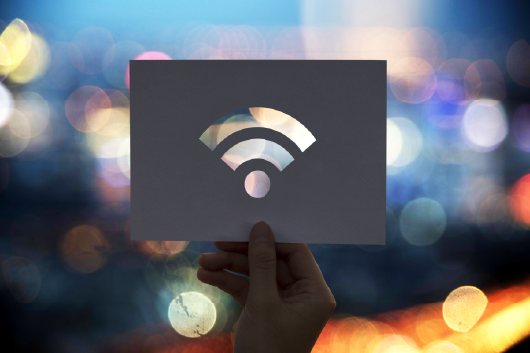How Does a VPN Protect Me on Public Wi-Fi?

How Does a VPN Protect Me on Public Wi-Fi?
Public Wi-Fi networks are a lifesaver when you’re on the move, allowing you to stay connected in cafes, airports, hotels, and even parks. However, the convenience of public Wi-Fi comes with significant security risks. While you might assume you’re safely browsing or checking your emails, public networks are often the hunting grounds for cybercriminals looking to steal sensitive data. Fortunately, using a VPN (Virtual Private Network) can shield you from these risks. In this post, we’ll explore how a VPN protects you when using public Wi-Fi.
The Vulnerabilities of Public Wi-Fi
Public Wi-Fi networks are attractive because they’re free, accessible, and generally don’t require complex authentication. However, that same lack of security makes them vulnerable to a host of attacks. Public networks are often unencrypted, which means that any data transmitted over the network can be intercepted by hackers.
Here are some common risks associated with public Wi-Fi:
- Man-in-the-Middle (MITM) Attacks: One of the most prevalent threats on public Wi-Fi is a MITM attack, where an attacker intercepts the communication between your device and the Wi-Fi network. Essentially, the hacker sits in between you and the network, capturing data that might include sensitive information like usernames, passwords, or even credit card details.
- Fake Wi-Fi Networks (Evil Twin Networks): Hackers can create fake Wi-Fi networks, known as evil twin networks, that mimic the name of legitimate public Wi-Fi networks. When you connect to these rogue networks, the attacker can easily monitor your activity and steal your personal information.
- Unencrypted Connections: Most public Wi-Fi networks don’t use encryption protocols like WPA2. This means your data is being transmitted in plain text, making it easy for cybercriminals to snoop on your online activities.
How a VPN Protects You on Public Wi-Fi
- Encrypts Your Internet Traffic: The primary function of a VPN is to encrypt all of the data traveling between your device and the internet. This creates a secure tunnel that shields your online activities from prying eyes. Even if a hacker were to intercept your connection on a public Wi-Fi network, they would only see scrambled, unreadable data.
- Prevents Man-in-the-Middle Attacks: Since a VPN encrypts your connection, it prevents attackers from intercepting and tampering with your communication. Even if they manage to position themselves between you and the network, the encryption provided by the VPN ensures they cannot decipher any of your sensitive data.
- Secure Access to Sensitive Information: Public Wi-Fi is convenient for tasks like checking emails, banking, or accessing work-related files. However, without a VPN, these activities could expose sensitive data. A VPN ensures that even if you're accessing personal or confidential information on a public network, your data remains secure and private.
- Prevents Eavesdropping and Data Theft: With a VPN, your real IP address is hidden, and your connection is encrypted. This prevents hackers and other malicious actors on the same network from eavesdropping on your activities or stealing your personal information.
- Protects Against Fake Wi-Fi Networks: Even if you accidentally connect to a rogue Wi-Fi network, a VPN ensures that your encrypted traffic cannot be exploited. The VPN’s encryption makes it nearly impossible for hackers to steal your information, even if they control the network.
Additional Benefits of a VPN on Public Wi-Fi
- Avoiding Location-Based Restrictions: Sometimes, public Wi-Fi networks are set up with restrictions that block access to certain websites or services. For example, a hotel network may block streaming services, or a library may block social media. By using a VPN, you can bypass these restrictions and access any website or service you need.
- Safe Access to Streaming and Work Accounts: Whether you're streaming a show or accessing work emails while on a public network, a VPN ensures that your login credentials and personal data remain protected from prying eyes.
To summarize, public Wi-Fi may be convenient, but it can also expose your data to significant risks. From MITM attacks to fake Wi-Fi networks, cybercriminals use various tactics to exploit unprotected users. A VPN is your best defense when using public Wi-Fi, as it encrypts your connection and shields your data from hackers. With JourneyVPN, you can browse, work, and access your favorite services on public networks without worrying about the security of your online activities.